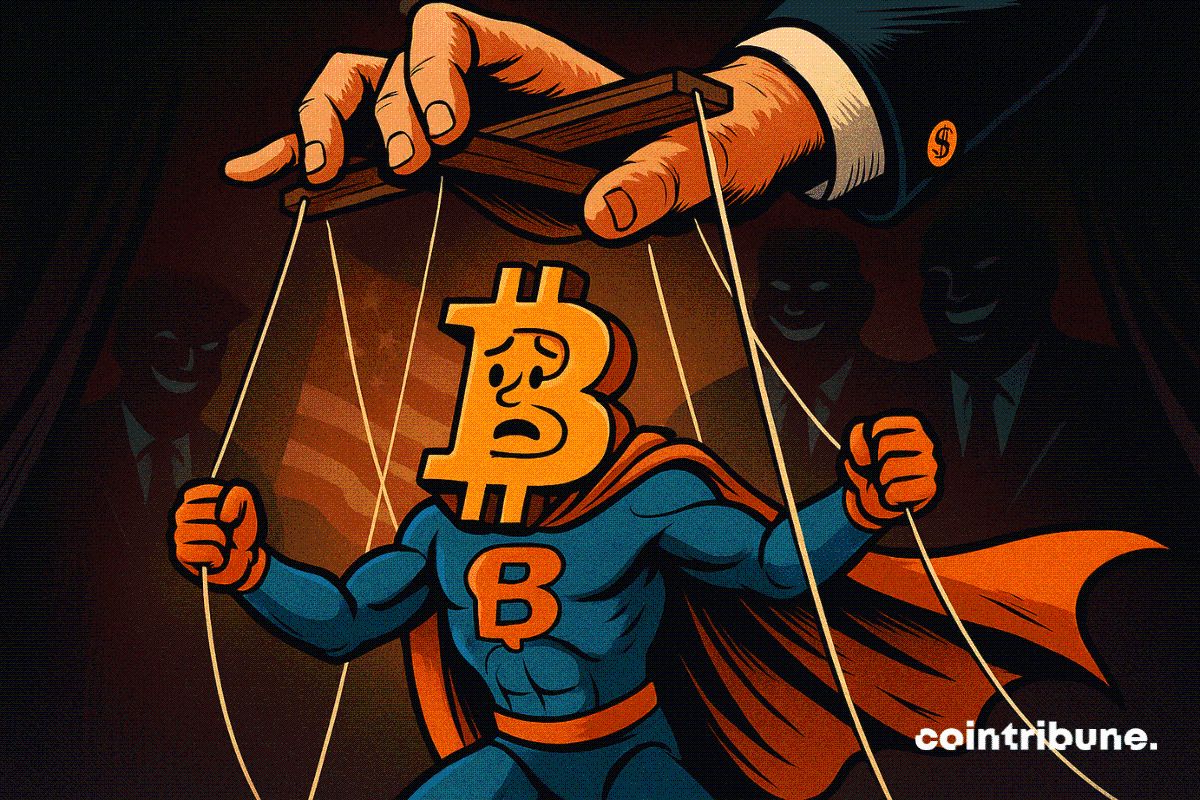Quantica Tech Builds Quantum-Resistant Crypto ‘BTCQ’
Key Highlights
- Quantica Tech announced the development of Quantic Bitcoin (BTCQ), which is a new cryptocurrency designed to be secure against future attacks from advanced quantum computers
- The project uses a quantum interoperability protocol to connect classical and quantum systems
- The announcement comes amid a major investment from big tech firms like IBM and Google
On October 6, Portuguese quantum computing firm Quantica Tech announced the development of Quantic Bitcoin (BTCQ). It is a quantum interoperability protocol to connect traditional blockchain networks with a next-generation computing framework.
What is Quantic Bitcoin
According to the official press release, the concept of BTCQ comes from Quantica Tech’s proprietary Quantum Interoperability protocol, which opens the door for communication between classical blockchains and quantum processing systems.
This hybrid architecture allows the network to integrate quantum computing advantages for complex tasks like transaction validation and smart contract execution while maintaining backward compatibility with existing infrastructure.
The project uses the Quantic Algorithmization method, which takes its inspiration from quantum principles like superposition and entanglement to process outcomes more efficiently than conventional systems.
Technically speaking, BTCQ works on a multi-layered structure. Its base layer maintains Bitcoin’s proof-of-work consensus mechanism. However, it replaces vulnerable cryptographic signatures with quantum-resistant alternatives based on NIST-approved post-quantum standards.
This provides Shor’s algorithm attacks that threaten conventional blockchain security. The network also uses emulators to run quantum algorithms on classical hardware during this transitional period. This removes the need for quantum computer access while preparing for full integration.
“At the foundation of Quantic Bitcoin lies Quantic Algorithmization, a new philosophy of algorithm design, inspired by quantum models. To demonstrate this approach, Quantica Tech successfully applied it to predict the outcome of the latest U.S. presidential election using real-time public data streams. The experiment accurately forecast both the electoral college and popular vote results and was officially preregistered with a notarial authority,” the company stated in an official press release.
The ecosystem also uses fractional units called Photons, Quarks, and Bosons, which enable micro-transactions.
According to an official statement, the company is planning Simple Agreements for Future Tokens (SAFTs) in late 2025. It will allow early investors access to deferred rights to BTCQ.
Ironically, this revelation comes amid rising concerns that advancing quantum computers could potentially breach the cryptographic security that currently protects cryptocurrencies like Bitcoin.
Quantum-Resistant Cryptocurrencies Become New Trend
This announcement comes amid the gradually surging popularity of quantum-secure digital assets. This new trend was accelerated by NIST’s 2025 standardization of post-quantum cryptographic algorithms.
The Quantum Resistant Ledger (QRL) transitioned to Proof-of-Stake in early 2025 by using XMSS signatures for comprehensive post-quantum protection. It has achieved a $150 million market capitalization comes after this upgrade.
Similarly, Algorand integrated Falcon signatures in May 2025. It has secured its blockchain history against possible quantum retroactive attacks while soaring decentralized finance adoption to $2 billion in TVL.
Other companies are also building quantum-safe blockchains. For example, Cellframe launched new secure nodes, and QANplatform is working with IBM on a cybersecurity system that combines blockchain and artificial intelligence.
However, this has also triggered the tension of the “harvest now, decrypt later” attack. This is when hackers steal encrypted data today to unlock it later when quantum computers become powerful enough.
Many big companies are deeply involved in the race to merge quantum computing with blockchain. IBM has a program called “Quantum Safe” that adds quantum-resistant security to its powerful computers.
The company is also working with banks like JPMorgan to create new, ultra-secure financial record-keeping systems. IBM also plans to build a massive quantum computer with 16,000 qubits, which is the core unit of quantum power.
Similarly, Google has created a new quantum chip called “Willow” that is better at correcting its own errors. Through its cloud service, Google allows other companies to test quantum-safe cryptocurrency ideas. Its parent company, Alphabet, has a $1 billion investment fund specifically for projects that connect blockchains with quantum technology.
Disclaimer: The content of this article solely reflects the author's opinion and does not represent the platform in any capacity. This article is not intended to serve as a reference for making investment decisions.
You may also like
DOJ Exposes $7.8M Crypto Scam Tied To Bitcoin Rodney

Grayscale Signals Bitcoin Could Hit New Highs in 2026 Despite Recent Dip

Will the Bitcoin Cycle Survive American Monetary Policy?

